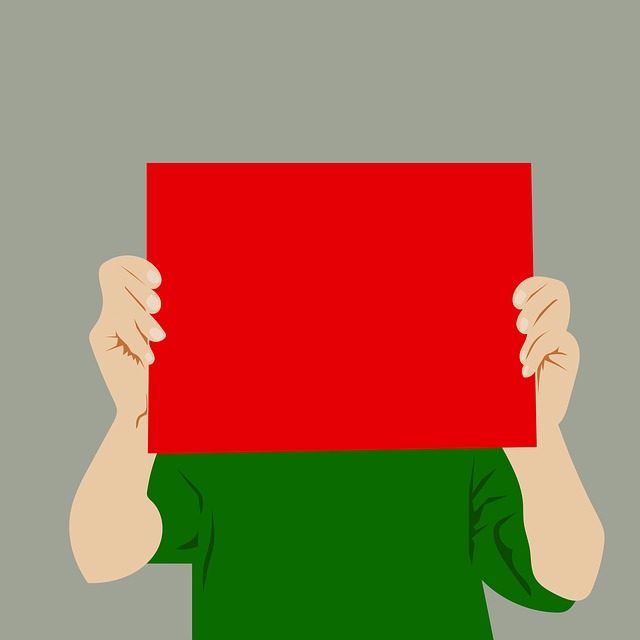Cognitive Behavioral Therapy (CBT) is an effective, structured approach for managing Obsessive-Compulsive Disorder (OCD), focusing on identifying and modifying negative thought patterns and behaviors. Through CBT, individuals learn to challenge obsessions, reduce anxiety, and minimize compulsions, gaining control over their lives. This therapy involves exposure techniques, mindfulness practices, and tailored coping strategies, leading to improved well-being for OCD sufferers in the long term. It's crucial to find a qualified therapist with expertise in CBT for OCD to ensure successful treatment.
Obsessive-Compulsive Disorder (OCD) can significantly impact daily life, with intrusive thoughts and repetitive behaviors creating a debilitating cycle. Cognitive Behavioral Therapy (CBT), a highly effective treatment approach, offers a path to freedom. This article delves into the intricate relationship between CBT and OCD, explaining how it identifies and challenges obsessions and compulsions. We explore proven techniques used in CBT for OCD management, its long-term benefits, and guide you on finding a specialized therapist. Discover how CBT therapy can help break free from OCD’s grasp.
Understanding Obsessive-Compulsive Disorder (OCD)

Obsessive-Compulsive Disorder (OCD) is a mental health condition characterized by intrusive thoughts and repetitive behaviors that individuals feel compelled to perform. These obsessions and compulsions can significantly impact daily life, causing distress and disrupting routines. OCD often manifests in various forms, such as excessive concern for contamination, symmetry, or doubt, leading to actions like repetitive washing, checking, or counting rituals.
Cognitive Behavioral Therapy (CBT) is a highly effective approach to treating OCD. It helps individuals recognize and challenge unhelpful thought patterns and behaviors. Through CBT, patients learn to manage their symptoms by acquiring coping strategies to resist compulsions and reduce the impact of obsessions. This therapy encourages a more balanced and realistic perspective, enabling those with OCD to lead fulfilling lives with minimal impairment.
What is Cognitive Behavioral Therapy (CBT)?

Cognitive Behavioral Therapy (CBT) is a form of talk therapy that focuses on identifying and changing negative thought patterns and behaviors. It’s a structured and goal-oriented approach designed to help individuals manage mental health conditions effectively. By understanding the connection between thoughts, feelings, and actions, CBT enables people to challenge and replace unhelpful cognitive distortions with healthier alternatives. This process empowers them to cope with obsessions and compulsions associated with disorders like obsessive-compulsive disorder (OCD).
The therapy encourages patients to actively participate in their own recovery by learning specific skills to monitor and modify their thinking and behavior. It involves setting achievable goals, facing fears gradually, and using various techniques such as exposure and response prevention to reduce anxiety related to obsessions. CBT has proven to be a highly effective treatment for OCD, offering long-lasting relief from symptoms for many individuals.
The Link Between CBT and OCD Treatment

Cognitive Behavioral Therapy (CBT) has established itself as a highly effective approach in treating obsessive-compulsive disorder (OCD). The link between CBT and OCD treatment is rooted in understanding the underlying thought patterns and behaviors that contribute to the condition. By identifying distorted cognitive processes, such as intrusive thoughts and irrational beliefs, CBT helps individuals challenge and modify these unhelpful thought habits.
Through structured sessions, CBT enables patients to develop healthier coping strategies, learn exposure techniques, and gradually face their fears without resorting to compulsive behaviors. This therapeutic process empowers individuals to manage symptoms, reduce anxiety, and improve overall quality of life. The success of CBT lies in its ability to provide practical tools for managing OCD, offering a lasting solution rather than just temporary relief.
How CBT Identifies and Challenges Obsessions and Compulsions

Cognitive Behavioral Therapy (CBT) offers a structured approach to identifying and modifying the thought patterns, behaviors, and beliefs that contribute to OCD symptoms. It recognizes that obsessions and compulsions are interconnected; obsessions are recurrent, intrusive thoughts or images that cause distress, while compulsions are repetitive behaviors performed in response to these obsessions with the aim of reducing anxiety.
Through CBT, individuals learn to recognize their obsessive thoughts as irrational and uncover the underlying beliefs fueling them. Therapists help clients challenge and replace these distorted cognitions with more realistic, balanced ones. This process empowers individuals to resist engaging in compulsive behaviors, thereby reducing the power of OCD over their lives.
Techniques Used in CBT for OCD

Cognitive Behavioral Therapy (CBT) employs a range of effective techniques tailored to address the specific thought patterns and behaviors associated with OCD. The core approach involves identifying and challenging irrational beliefs, often through a process known as cognitive restructuring. This helps individuals recognize and modify unhelpful thoughts that contribute to their obsessions and compulsions.
One key technique is exposure and response prevention (ERP), where patients are gradually exposed to situations or objects they fear, learning to resist the urge to engage in compulsive behaviors. By facing these triggers safely, individuals can reduce anxiety and learn healthier coping mechanisms. CBT also encourages mindfulness practices to help individuals stay present and aware of their thoughts and feelings without judgment, fostering a greater sense of control over OCD symptoms.
Benefits of CBT for Managing OCD Symptoms

CBT therapy has emerged as a highly effective approach for managing obsessive-compulsive disorder (OCD) symptoms, offering individuals a pathway to overcome their intrusions and compulsions. This form of cognitive behavioral therapy focuses on identifying and modifying negative thought patterns and behaviors associated with OCD, empowering patients to challenge and change their responses to obsessions. By helping individuals recognize the connection between thoughts, feelings, and behaviors, CBT provides practical tools to effectively manage symptoms.
One of the key advantages of CBT is its ability to equip people with coping strategies tailored to their unique experiences. Through structured sessions, individuals learn to confront their fears, reduce anxiety, and minimize the urge to engage in compulsive rituals. As a result, CBT therapy enables those struggling with OCD to regain control over their lives, leading to improved overall well-being and a higher quality of life.
Integrating CBT into Daily Life for Long-Term Relief

Integrating Cognitive Behavioral Therapy (CBT) into daily life is a crucial step for managing and overcoming obsessive-compulsive disorder (OCD). CBT therapy focuses on identifying and changing negative thought patterns and behaviors that contribute to OCD symptoms. Through this process, individuals learn to challenge their obsessions and reduce engaging in compulsive actions. By practicing mindfulness and applying the techniques learned during therapy sessions, one can effectively manage OCD in the long term.
This integration involves setting realistic goals, monitoring thoughts and behaviors, and gradually exposing oneself to feared situations without performing compulsions. It encourages a more balanced and rational approach to coping with obsessions, enabling individuals to gain a sense of control over their lives. Over time, these strategies become second nature, providing lasting relief from OCD symptoms and promoting overall well-being.
Finding a Therapist Specializing in CBT for OCD

Finding a qualified therapist who specializes in Cognitive Behavioral Therapy (CBT) for Obsessive-Compulsive Disorder (OCD) is a crucial step in your treatment journey. While many therapists offer CBT, not all have specialized training or experience in treating OCD specifically. Look for licensed mental health professionals with advanced education and certifications in CBT for OCD. This ensures that they are equipped to help you navigate the unique challenges of this disorder.
You can start by asking your primary care physician for referrals, checking online directories of mental health professionals, or reaching out to local psychological associations. Additionally, many reputable therapy platforms have filters that allow you to search specifically for CBT therapists specializing in OCD, making it easier to find a suitable match. Remember, the right therapist will create a safe and supportive environment, respect your boundaries, and guide you through the process effectively.
